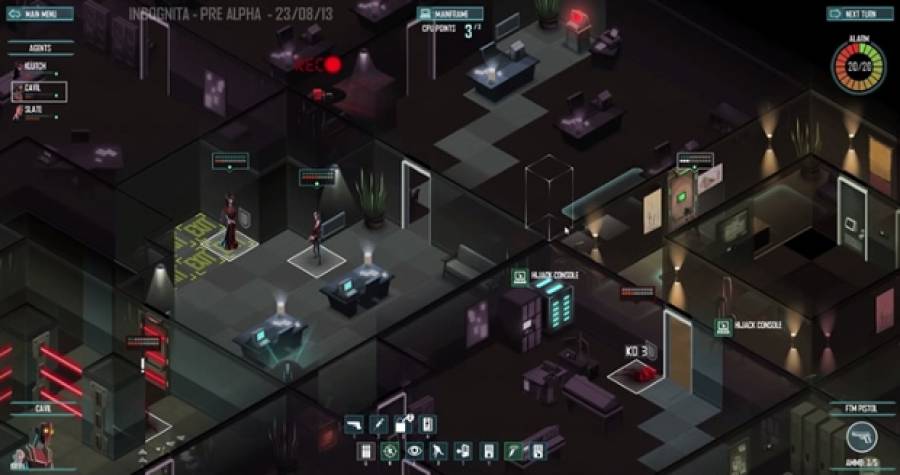
Moreover, these dudes and dudettes pursue and attack you with absolute reckless abandon. And the manner in which they soar across the sand when struck with an explosive urn? Don't even get me talking about it it's too good. They cover their booboos when thrashed in the head, and look as confused and frustrated as a kitten on ice every time their legs are wacked out from beneath them. Speaking of bastards, the enemies are just too fun to beat up on.
Invisible inc ps4 review crack#
Combat is replete with situations where you will, in one sequence, push an armless demon into a spike trap, pull a sword-wielding demon into trap door, spin around and crack a fire projectile right back into the face of the wench who lobbed it, then whip-grab an explosive urn to toss it into a group of animated skeletons that the red, burly bastard-of-a-genie refuses to stop summoning. When a skirmish becomes particularly rambunctious, with five-plus demons taking swings and hurling fireballs at your unarmored loins, the relationship between the sword and whip transforms into a duo capoeira dance synchronization of crowd control. But the whip can also be used to stun, drop a demon on his boney buns, disarm weapons and traps, knock back projectiles, pull enemies into slicing range, collect riches and throwable items, and swing you out of (or into) deadly pandemonium. Thankfully, you came prepared for such resistance with a scimitar in your right hand and a whip in your left, you will (hopefully) be the first to slice and crack your brave bod to the heart of the city, by conquering thirteen stages (twelve stages and a final boss) with a moveset that proves to be as useful as gold is savory. The problem is, the city is infested with a variety of laborious traps and demons, former would-be thieves who tried and failed to journey their way to the city's central trove of unspeakable riches.


Imagine you are Aladdin, but instead of befriending an awesomely erratic genie or wooing some ironically stinky princess, your passion - no, your obsession - is to infiltrate a cursed city of treasure, loading every pocket of your fanny pack and every crevice of your toned, bronzed anatomy with ambrosial gold! Gold coins! Gold statues! Gold pottery! More gold than a hypnotized sultan could be duped into spending in 6 lifetimes. However, like the two games aforementioned, City of Brass - a first-person rogue-lite with a vivid Arabian Nights veneer - shows that if you have an enchanting art style, enemies that are a pleasure to duel and manipulate, and a combat system that's rhythmic and versatile yet simple to execute, procedural generation can become less like a vapid maze of eyesores and more like a tool that actually contributes degrees of surprise and suspense. To put it bluntly, while I understand the utility of procedural generation, my soul generally flees my body through my retinas any time a game touts it as a "FRESH, IMMORTALIZING!" feature. In actuality, it renders the environments and level design surreal in their heartlessness, exhibiting the impression that, at best, these crucial aspects received only an imitation of creative human sympathy or, at worst, that they were fabricated by a rogue algorithm inspired by the rugged uniformity of the prison toilet system. In most rogue-lites, procedural generation is purported to make each playthrough "NEW!" and "UNPREDICTABLE!" and "LIKE SEX WITH A BEING COMPOSED OF SWEDISH LIGHTNING AND NORDIC THUNDER!". But the one characteristic that makes me lose interest faster than a lion loses interest in a rotten cucumber smothered in animal deterrent spray is the gosh-damn procedural generation. I appreciate that, on an absurdist level, any progress made, besides the knowledge obtained, is rendered nearly meaningless upon death or failure, since said failure strips you of all earnings and demands that you restart from the beginning.

I love that, like in real life, they require practice, hard work, skill, and a lot of luck to make meaningful progress. Other than Crypt of the Necrodancer and Invisible Inc., rogue-lites usually fail to hold my attention for more than a dozen hours.


 0 kommentar(er)
0 kommentar(er)
